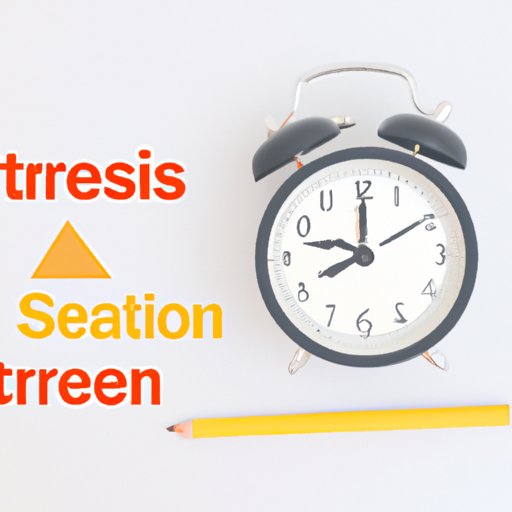
Decreasing Stress: Practical Ways to Relieve Anxiety and Improve Mental Health
Stress is a natural human reaction to life’s challenges and demands. While some stress can be beneficial in motivating and helping you to perform under pressure, chronic stress can take a toll on your physical and emotional health. Research shows that too much stress can negatively impact your immune system, heart, and overall well-being. The good news is that there are simple and practical ways to decrease stress and enhance the quality of your life. In this article, we will cover a range of effective stress-reducing techniques to help you manage your daily stressors and improve your mental health.
Prioritize and Organize
One of the leading causes of stress is being disorganized and feeling overwhelmed. To counteract this, it is essential to prioritize your tasks and organize your time efficiently. Simple techniques, such as making a to-do list, breaking tasks into smaller components, or using apps to schedule and prioritize tasks, can be extremely beneficial in reducing anxiety and stress. By organizing your time, you can minimize the feeling of being overwhelmed and improve your productivity.
Exercise
Regular exercise is crucial in reducing stress levels and promoting physical and mental health. Engaging in physical activities such as yoga, walking, or cycling, can help reduce cortisol, a hormone usually associated with stress. Exercise also releases endorphins, neurotransmitters that contribute to a sense of well-being and positivity. Incorporating a regular exercise routine into your life can also help reduce feelings of depression and anxiety.
Environment
The environment around you can significantly influence your stress levels. Different elements such as lighting, plants, sounds, and colors, can have a significant impact on your mood and mental state. Consider gradually introducing changes into your environment, such as adding plants, changing lighting, or redecorating. By incorporating these simple techniques, you can enhance your immediate space and reduce feelings of stress and anxiety.
Meditation
Meditation is an excellent tool for decreasing stress levels. It encourages deep relaxation, improves self-awareness, and reduces symptoms of anxiety and depression. To get started, find a quiet place to sit and focus on your breath. It is normal for thoughts to come in at first, but the goal is to acknowledge and let them go. Beginners can start with a few minutes of meditation per day and gradually increase to ten or twenty minutes or more.
Socializing
Human connection is essential for an individual’s mental and emotional health. Isolation and loneliness can lead to feelings of anxiety and depression. Socializing with friends and family can help counteract these feelings by providing a support network and a sense of belonging. Engage in activities that allow you to be in contact with others regularly. If you are struggling with loneliness, consider attending local events, joining clubs or teams, volunteering, or starting online communities.
Minimize Caffeine and Sugar
Caffeine and sugar consumption can significantly affect anxiety levels. Caffeine is a stimulant that can lead to increased heart rate and feelings of restlessness. Large amounts of sugar can cause a spike in blood sugar levels, which can lead to increased anxiety and nervousness. To decrease stress, consider substituting caffeine for herbal tea or water and minimizing refined sugar in your diet.
Time Management
Time management is essential in reducing stress levels. The Pomodoro technique can be effective in managing time by setting up specific intervals of work and rest. By breaking tasks into smaller chunks and working on them for shorter periods, you can improve focus, increase productivity, and reduce the feeling of being overwhelmed. Remember to be kind to yourself and set realistic expectations; putting too much pressure on yourself can lead to heightened stress levels.
Conclusion
Too much stress can have severe implications for your health and overall well-being. Incorporating practical techniques into your daily routine can enhance your mental health, promote relaxation, and reduce stress levels. Remember to prioritize and organize your time, engage in regular exercise, customize your environment, meditate, socialize, minimize caffeine and sugar consumption, and manage your time efficiently. Remember, seeking additional resources or professional help is always an option if your stress levels seem unmanageable. Prioritizing your mental health is essential to maintain a healthy and happy lifestyle.





